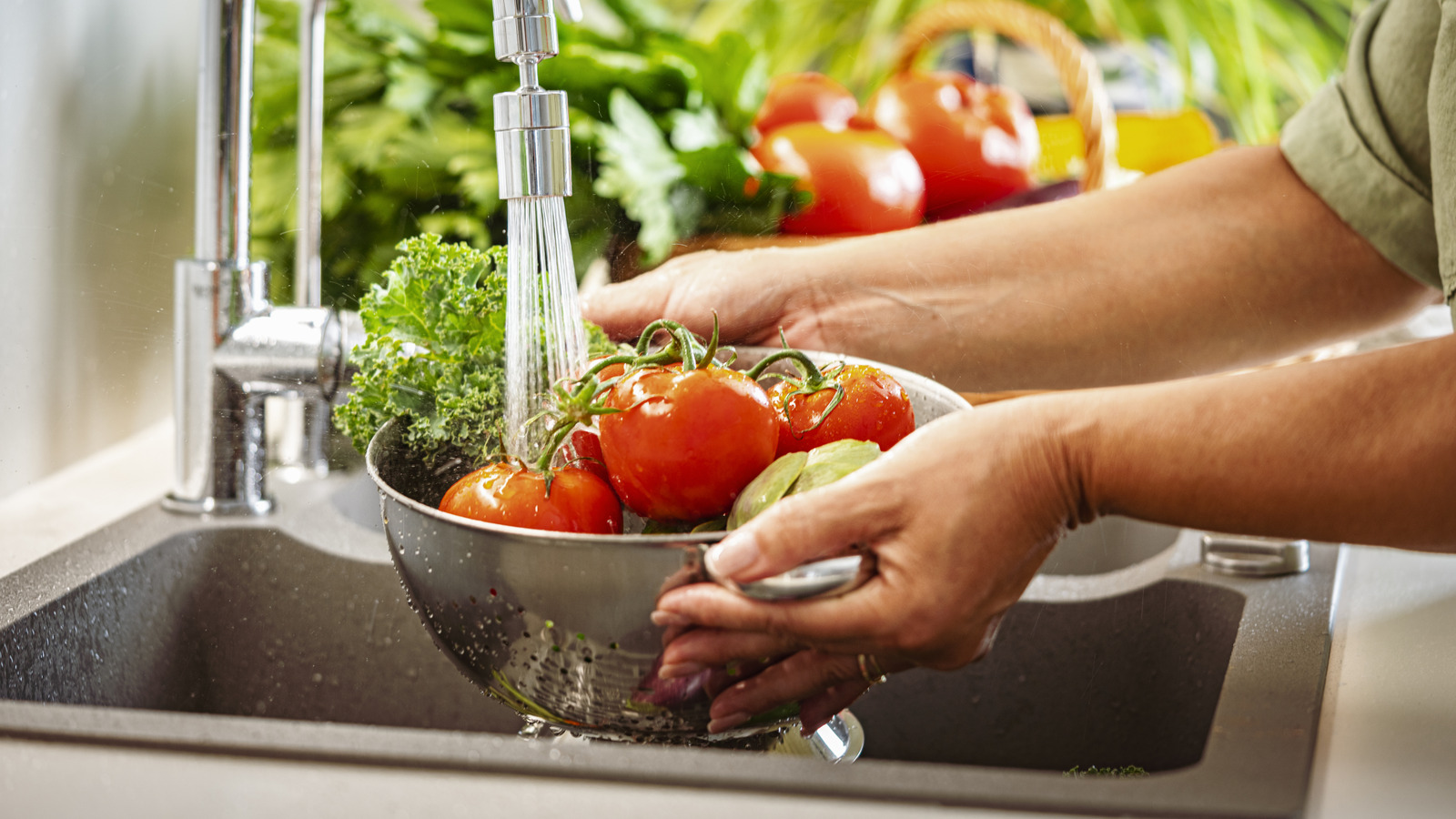
"Baking soda is an effective cleaning solution for many kitchen needs because it's an alkaline salt. That's why, when you combine it with acidic vinegar, it causes a chemical reaction that can cut through pretty much any grime. It is also relatively abrasive and can really get in there, scrubbing dirt and anything else off of a surface. As such, it's not hard to understand why people have been using baking soda to clean the surfaces of their produce, too."
"The answer is that, according to a 2019 study, baking soda isn't that much more effective than water considering the minimal levels of pesticides found on most produce anyway. Beyond that, it also involves a lengthier process, and can even prematurely soften produce, since the soaking process can break down not just dirt, but also peels and skins."
Washing fruits and vegetables before eating is recommended because produce can carry dirt, germs, and trace pesticides. Baking soda is alkaline and relatively abrasive, and it reacts with acidic vinegar to cut through grime. The abrasive action can scrub dirt from surfaces, which explains its use on produce. A 2019 study found baking soda is not substantially more effective than water given the typically minimal pesticide residues on most produce. The baking-soda soaking process takes longer and can break down peels and skins, potentially softening produce prematurely. Plain water remains the preferred washing method.
Read at Tasting Table
Unable to calculate read time
Collection
[
|
...
]